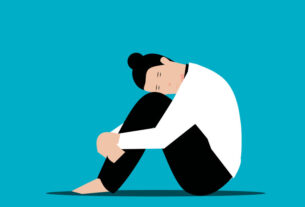When exercising, there’s a common belief that we’re doing something good for our bodies yet in practice, many beliefs about training routines actually turn healthy activities into harmful and even dangerous ones.
Here’s a list of the mistakes we see repeated over and over among trainees which can dramatically increase the risk of injuries, chronic pain and damage to muscles in the long term.
Don’t skip your warm-ups
If stretching is obvious for you, go to the next item on the list. If not, here’s more information about this basic and important habit.
The Mayo Clinic, a major and reliable source of medical information, emphasizes the importance of stretching before working out to improve flexibility, prevent injuries, and improve physical performance. Doctors at Mayo published an article stating that those who forego warm-ups significantly raise their chances of developing joint stiffness and experiencing other medical problems that can happen to any athlete – especially with more intense training.
This is because a simple stretching routine improves blood flow to organs that work very hard during exercise and, as a result, really need oxygen and nutrients. This advice is basic, but too many people who exercise still give it up, which is why it’s important to emphasize stretching.
Don’t keep going when it starts to hurt
When bread is stale and hard, you don’t eat it. So if you’re not doing basic training in the army, don’t do things that hurt you. Yes, sometimes it feels good and even necessary to push ourselves to the limit, but never beyond that, even if you think you have superpowers.
All athletes and bodybuilders in gyms have a natural competitive instinct, whether against others or against themselves. Competitiveness pushes us to improve and develop, but pain is a feeling that signals that something is wrong, that the body needs a break, that we’re not moving correctly, or that the exercise is simply too difficult right now. If you don’t listen to this warning sign and pay attention to it, you’ll have injuries, chronic pain and serious medical problems down the road.
Don’t force yourself to do uncomfortable work-outs
If you think that physical exercise shouldn’t be comfortable, that it should be challenging and get more and more difficult over time, you’re right. But if an exercise you’re doing causes significant discomfort, it’s your body trying to signal that something just isn’t working properly.
People who work out in gyms with certain equipment to stimulate specific muscle groups and move in ways that don’t feel natural may cause certain muscle groups to develop in an unnatural manner while other more vital muscles won’t receive the same attention.
Your body will get stronger, but not in the way it needs to really be healthier and stronger. If you perform an exercise that feels uncomfortable and unnatural, try another exercise that works out several muscle groups and stimulates them in a way that feels more natural. Also, try using rubber bands and weights.
Don’t settle for just one type of work-out
Fitness can be divided into two main groups. One is endurance (aerobics), such as running, swimming, cycling or jumping rope. The other is strength training like weight lifting, TRX and others. Interval training combines endurance and strength.
Each person really likes one type of exercise, but if you give up one of these elements, you won’t improve your fitness and you may harm your health. For example, people who only run without doing any strength training can lose muscle mass and raise their risk of being injured. People who only lift weights without running may develop distorted muscles, a slower metabolism, and more.
Don’t work out too much
You might envy people who wake up and work out daily but understand that these people are putting themselves at a risk that is just as great, and maybe even more, than those who don’t exercise at all.
A special report published in the US shows that people who work out without taking intervals of at least one day between exercising significantly increase the risk of serious injuries and poor performance. The reason for this, naturally, is that the body needs rest just as much as it needs training in order to heal, develop and improve.
In general, people who are more aware of what’s going on with their body, who listen to it, pay attention to warning signs and make sure to give it what it really needs are those who according to all the data are more likely to enjoy a healthier lifestyle which will allow them to exercise, have fun and stay stronger and healthier even as genetics and aging will greatly impact their bodies.




